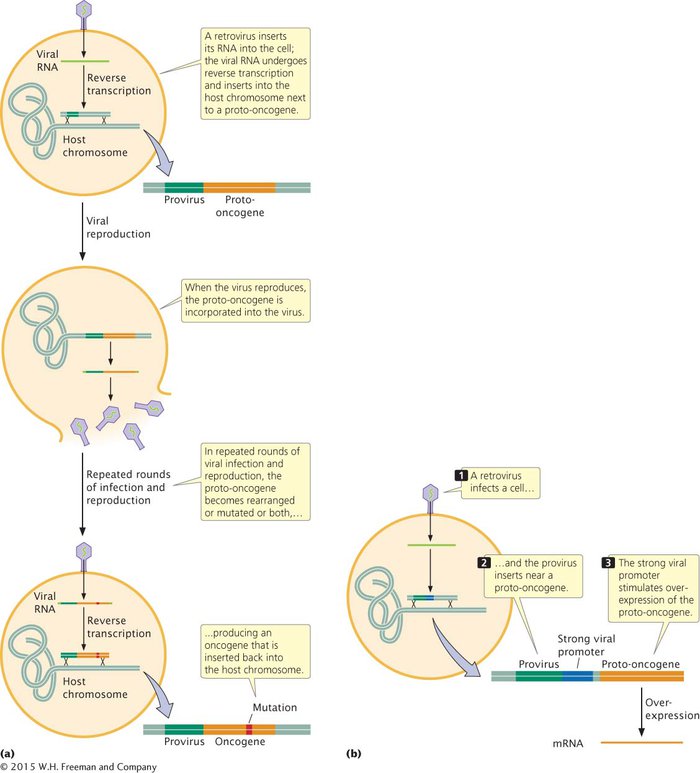16.5 Viruses Are Associated with Some Cancers
As mentioned earlier in this chapter, viruses are responsible for a number of cancers in animals, and there is evidence that viruses contribute to at least a few cancers in humans (Table 16.6). For example, about 95% of all women with cervical cancer are infected with human papilloma viruses (HPVs). Similarly, infection with the virus that causes hepatitis B increases the risk of liver cancer in some people. The Epstein–Barr virus, which is responsible for mononucleosis, has been linked to several types of cancer that are prevalent in parts of Africa, including Burkitt lymphoma.
| Virus | Cancer | |
|---|---|---|
| Human papilloma viruses (HPVs) | Cervical, penile, and vulvar cancers | |
| Hepatitis B virus | Liver cancer | |
| Human T- |
Adult T- |
|
| Human T- |
Hairy- |
|
| Epstein–Barr virus | Burkitt lymphoma, nasopharyngeal cancer, Hodgkin lymphoma | |
| Human herpes virus | Kaposi sarcoma | |
| Merkel cell polyomavirus | Merkel cell carcinoma | |
|
Note: Some of these associations between cancer and viruses exist only in certain populations and geographic areas. |
||
Many of the viruses that cause cancer in animals are retroviruses (see Chapter 7). Earlier in this chapter, we learned how studies of the Rous sarcoma retrovirus in chickens led to the identification of oncogenes in humans. Retroviruses sometimes cause cancer by mutating and rearranging host genes, converting proto-

CONCEPTS
Viruses contribute to a few cancers in humans by mutating and rearranging host genes that then contribute to cell proliferation, or by altering the expression of host genes.